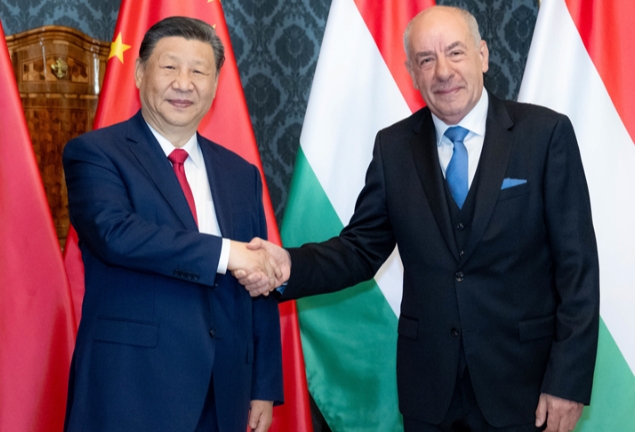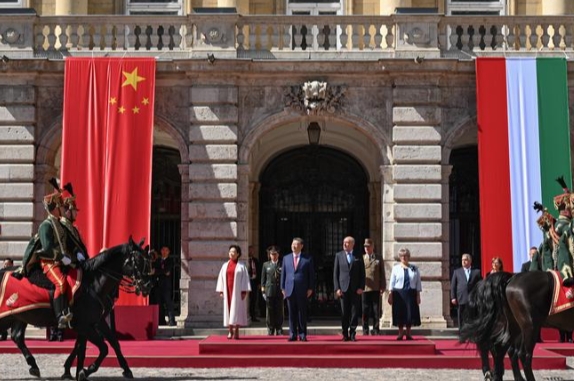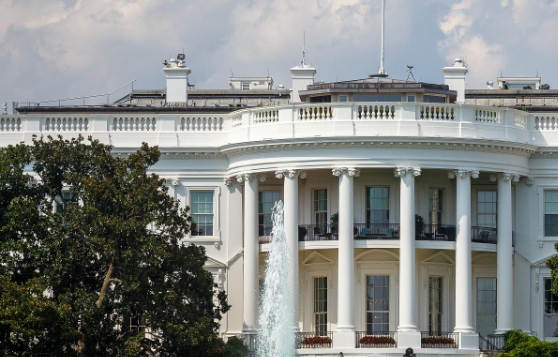CATTI-题库-真题-模拟-课程-直播
 天之聪教育
天之聪教育
 2012-09-18
2012-09-18
 天之聪教育
天之聪教育
 376次
376次
外交部部长助理乐玉成在钓鱼岛问题座谈会上的讲话
2012年9月14日,钓鱼台国宾馆
Remarks by Assistant Foreign Minister Le Yucheng at the Symposium on the Issue of Diaoyu Dao
Diaoyutai State Guesthouse
14 September 2012

各位专家学者,
社会各界的朋友们,
Experts and scholars,
Friends from across the society,
大家好!感谢中国国际问题研究所、北京市青联和新华网作为主办单位邀请我参加这次座谈会。这次座谈会的背景大家都清楚。4天前,日本政府不顾中方反复严正交涉,宣布“购买”钓鱼岛及其附属的南小岛和北小岛,对这些岛屿实施“国有化”。日本政府的这一行径是对中国领土主权的严重侵犯,中国政府和人民对此表示坚决反对和强烈愤慨。今天,利用这个机会我想和大家谈谈个人对这一事件的一些看法。
Good afternoon. I wish to thank the hosts, China Institute of International Studies, Beijing Youth Federation and Xinhuanet, for inviting me to this symposium. We are all well aware of the background of this meeting. Four days ago, regardless of the repeated serious representations made by the Chinese side, the Japanese government announced the "purchase" of Diaoyu Dao and its affiliated Nanxiao Dao and Beixiao Dao and the "nationalization" of these islands. What the Japanese government did constitutes a gross violation of China's territorial sovereignty. The Chinese government and people have expressed firm opposition to and strong indignation over this action. I would like to use the opportunity today to share with you a few personal observations on this matter.
一段时间以来,日本在钓鱼岛问题上频频制造事端,风波不断,仅今年就接连发生日政府对钓鱼岛部分附属岛屿命名、部分议员赴钓鱼岛海域“钓鱼”、右翼分子登岛“慰灵”等闹剧,最终日本当局走到前台,实施所谓“购岛”计划。日方这一连串的动作充分说明,日方的“购岛”行动绝不是一起偶然事件,它是日本国内政治气候的变化所决定的。日本国内有一股“邪气”正在把日本和中日关系引向极其危险的方向。
Japan has been creating trouble and making waves on the issue of Diaoyu Dao for quite some time. This year alone, the Japanese government has named some of Diaoyu Dao's affiliated islands; some members of the Japanese Diet went "angling" in the waters of Diaoyu Dao; right-wingers landed on the island and staged the farce of a so-called "ceremony to mourn the victims of war". Finally, the Japanese government has come out from behind the curtain to execute the so-called plan to "purchase" the islands. This course of actions, which are closely sequenced, fully demonstrates that Japan's "purchase of the islands" is by no means an isolated event. It is a result of the changing political climate in Japan. There is a sinister tendency inside Japan that is taking Japan and China-Japan relations down an extremely dangerous road.
过去20年,日本经济一直低迷,加上受到国际金融危机和去年“3·11”大地震的巨大冲击,经济发展前景很不乐观。国内党派斗争激烈,政府更迭频繁,充满不稳定和不确定性。以东京都知事石原慎太郎为代表的日本右翼势力,利用日本国内的这些问题煽风点火,兴风作浪,并逐渐形成气候。日本经常有政客跳出来公开否认侵略历史,否认南京大屠杀、慰安妇等战争暴行,说明这股势力能量越来越大,已经影响到日本的政坛风向和政局走向。周边和国际上不少人都已经发出警示,日本正在走向“极右翼主义”。日本当局不仅不对右翼势力这股祸水严加管束,反而姑息纵容,甚至将其当作“挡箭牌”,用来对周边邻国进行挑衅,力图对外转移视线和矛盾,已造成日本与邻国之间关系普遍紧张。与此同时,日本政府还积极谋求修改和平宪法和无核三原则等,企图摆脱战后国际秩序的束缚。这些动向十分危险,值得警惕。
Japan's economy has been in the doldrums over the past two decades. Hit hard by the international financial crisis and last year's devastating earthquake on March 11, Japan can hardly afford to be optimistic about its economic outlook. Instability and uncertainties abound in the Japanese politics as a result of ferocious political infighting and frequent change of government. The Japanese right-wing forces, represented by Shintaro Ishihara, Governor of Tokyo, have been using these domestic problems to incite tensions and make trouble, and gradually gained momentum. Some Japanese politicians would very often come out to publicly deny the history of Japanese aggression, the Nanjing Massacre, comfort women and other wartime atrocities. This shows the right-wing forces have become so energetic and assertive that they are already affecting the climate and future course of Japanese politics. Japan's neighbors and the international community have already warned that Japan is moving towards "ultra-rightism". Rather than keeping a lid on the trouble-making right-wing forces, the Japanese authorities have chosen to appease and give a free rein to them. The Japanese authorities have even used these forces as a shield to make provocations on neighboring countries in order to shift the attention of its domestic public to somewhere else. This has strained Japan's ties with almost all of its neighbors. At the same time, the Japanese government is quite active in trying to revise its peace constitution and the Three Non-Nuclear Principles in an attempt to get out of the bounds of the post-war order. These are highly dangerous developments that should put us on the alert.
日本国内这股“邪气”也突出表现在中日关系上,总有一些人不愿接受中国发展壮大的现实,看不惯中国人过上好日子,想方设法给中国找麻烦,在中日关系上滋事。钓鱼岛问题就成了这些人破坏中日关系的重要“抓手”。
The sinister tendency in Japan is particularly obvious in the Japanese approach to China-Japan relations. There are always some people in Japan who can hardly come to terms with the fact that China is growing stronger, and who can hardly bear to see the Chinese people becoming better off. There are always those in Japan who would go out of their way to make trouble for China and to disrupt China-Japan relations. Hence they have seized on the issue of Diaoyu Dao as an important lever to undermine China-Japan relations.
由此可见,这场钓鱼岛风波完全是日方一手挑起的,目的就是要改写日本当年非法窃取中国领土的不光彩历史,否定钓鱼岛属于中国的历史事实,这种企图是徒劳的、无益的。“未曾拥有则不能给付”,这是一句众所周知的法律格言。就好像一个人从邻居家抢了一辆自行车,不管是他儿子骑,还是他本人骑,都改变不了自行车不属于他的事实。无论日方将钓鱼岛等岛屿怎么转手和折腾,都丝毫改变不了日本侵占中国领土的历史事实,丝毫改变不了中国对钓鱼岛及其附属岛屿的领土主权。
It is therefore abundantly clear that the tensions surrounding Diaoyu Dao today are stirred up single-handedly by the Japanese side with the purpose of rewriting Japan's inglorious history of illegally stealing Chinese territory and denying the historical fact that Diaoyu Dao belongs to China. Such attempts, which are null and void, are made to no avail. A legal maxim known to all says "Nemo dat quod non habet" or "No one gives what he doesn't have." What Japan is doing is like someone grabbing a bicycle from his neighbor. No matter who rides that bicycle, he or his son, it does not change the fact that the bicycle does not belong to him. Whatever "deals" Japan makes on Diaoyu Dao and its affiliated islands, whatever Japan does with the islands, it will not, not even in the slightest terms, change the historical fact that Japan invaded and occupied Chinese territory, and it will not change at all China's territorial sovereignty over Diaoyu Dao and its affiliated islands.
围绕所谓“购岛”,日方抛出了种种谬论,试图掩人耳目,混淆视听。今天在座的有不少日本问题和国际问题专家,我们应该把钓鱼岛的真实身份和来历进一步说清楚,让世界了解钓鱼岛问题的真相。日方的谬论概括起来主要有四条:
Japan has dished out numerous fallacies on the so-called "purchase of the islands" in an attempt to cover up the truth and mislead public opinion. We have with us today quite many experts on Japanese and international issues. We should explain in greater depth the real ownership and history of Diaoyu Dao and let the world see the truth on the issue of Diaoyu Dao. Japan's fallacies can be summed up as the following four points.
一曰钓鱼岛是“无主地”论。这完全是无稽之谈。大量文献史料表明,钓鱼岛等岛屿是中国人最早发现、命名和利用的。15世纪以前,我国东南沿海的一些商人、渔民即把钓鱼岛等当作航海标志,历来在这些岛屿及其附近海域从事生产活动。早在明朝初期,钓鱼岛等岛屿就已经纳入中国海防管辖范围。这一点日本在近代以前的有关史料也是明确承认的。钓鱼岛自古以来就属于中国不是一句空话,不是查无实据,而是铁证如山。
First, Japan claims that Diaoyu Dao is "terra nullius". This is completely groundless. Abundant historical documents show that Diaoyu Dao and other islands were first discovered, named and exploited by the Chinese people. Before the 15th century, some businessmen and fishermen in China's Southeast coast used Diaoyu Dao as a mark for navigation and the Chinese have engaged in production activities on these islands and in their adjacent waters. Since the early years of the Ming Dynasty, Diaoyu Dao and other islands have been put under the jurisdiction of China's coastal defense. This fact was recognized by Japan in explicit terms in the Japanese historical records till the late 19th century. The Diaoyu Dao Islands have, therefore, been part of China since ancient times. This is not a baseless or unfounded statement. Rather it has every piece of irrefutable evidence.
二曰中日“不存在领土争议”论。日本利用甲午战争非法窃取钓鱼岛,二战结束后,钓鱼岛及其附属岛屿根据《开罗宣言》和《波茨坦公告》业已回归中国版图。1951年,日本同美国等国家签订片面的“旧金山和约”,将琉球群岛(即现在的冲绳)交由美国管理。1953年,美国控制下的琉球民政府擅自扩大管辖范围,将中国领土钓鱼岛及其附属岛屿裹挟其中。1971年,日、美两国在“归还冲绳协定”中又擅自把钓鱼岛等岛屿列入“归还区域”。中国政府对日、美这种私相授受中国领土的做法从一开始就坚决反对,不予承认。历史不容翻案。日方否认中日之间存在钓鱼岛争端,是对世界反法西斯战争胜利成果的公然否定,是对战后国际秩序的直接挑战。
Second, Japan claims that there is no territorial dispute between China and Japan. In fact, Japan seized on the first Sino-Japanese war (1894-1895) and illegally occupied Diaoyu Dao. After the Second World War, Diaoyu Dao and its affiliated islands were returned to China according to the Cairo Declaration and the Potsdam Proclamation. In 1951, the Treaty of Peace with Japan (commonly known as the Treaty of San Francisco, a treaty partial in nature) was signed between Japan, the United States and some other countries, placing the Ryukyu Islands (known as Okinawa today) under the administration of the United States. In 1953, the Civil Administration of the Ryukyu Islands under the control of the United States arbitrarily expanded its jurisdiction to include Diaoyu Dao and its affiliated islands, which are in fact Chinese territories. In 1971, Japan and the United States signed the Okinawa Reversion Agreement, which arbitrarily included Diaoyu Dao and other islands in the territories and territorial waters to be reverted to Japan. The Chinese government has, from the very beginning, firmly opposed and never recognized such backroom deals between Japan and the United States concerning Chinese territories. Facts are facts, and history is not to be reversed. Japan's claim that there is no dispute between China and Japan over Diaoyu Dao is an outright denial of the outcomes of the victory of the World Anti-Fascist War and constitutes a direct challenge to the post-war international order.
三曰中日在搁置领土争议问题上“不存在共识”论。这更是彻头彻尾的背信弃义。1972年中日邦交正常化和1978年缔结和平友好条约谈判过程中,两国老一辈领导人着眼大局,就“钓鱼岛问题放一放,留待以后解决”达成重要共识。中日邦交正常化的大门由此开启,中日关系才有了40年的巨大发展,东亚地区才有了40年的稳定与安宁。现在日本当局对两国当年的共识矢口否认,缺乏最起码的国家诚信,也严重动摇了中日政治互信的基础。
Third, Japan claims that there is no common understanding between China and Japan on shelving territorial disputes. This is an out and out lie. During the negotiations on the normalization of China-Japan relations in 1972 and on the signing of the Sino-Japanese Treaty of Peace and Friendship in 1978, the then leaders of the two countries, bearing in mind the larger interest of China-Japan relations, reached important common understanding on "leaving the issue of Diaoyu Dao to be resolved later". This opened the door to normalization of China-Japan relations and was followed by tremendous progress in China-Japan relations and stability and tranquility in East Asia in the following 40 years. But now the Japanese authorities deny the previous common understanding reached between the two countries. This shows a lack of the very basic integrity of a state and seriously shakes the foundation of political mutual trust between China and Japan.
四曰政府出面“购岛”是“被逼无奈”论。日方说政府“购岛”是为了避免石原“购岛”对中日关系可能造成的伤害,是为了保持钓鱼岛所谓的“平稳、稳定”,这完全是托词和借口。我们看到的事实和结果是,石原先是搭台,上演“购岛”闹剧,日政府“犹抱琵琶半遮面”随后登场,和石原一唱一和演“双簧”,目的就是强化日方在钓鱼岛问题上的所谓“法理地位”。如果听信日本政府的辩解,我们不禁要问,日本到底谁当家?我们该和谁打交道?日方如此折腾,钓鱼岛哪里还有什么“平稳、稳定”?
Fourth, Japan claims that the government is cornered into buying the islands. It says that the government buys the islands in order to avoid damage to China-Japan relations that may be caused by Shintaro Ishihara's purchase of the islands and to keep the situation in Diaoyu Dao "peaceful and stable". This is nothing but a pretext. The fact and the outcome turn out to be that Ishihara first set the stage and put on the farce of "islands purchase", then the Japanese government, with thinly veiled pretexts, echoed and joined him in this farce, one coaxing and the other coercing. Their aim is to strengthen Japan's "legal status" on the issue of Diaoyu Dao. Should there be any truth in the Japanese government's explanations, we cannot but ask: who has the final say in Japan? Who should we be dealing with? If the Japanese side keeps making trouble this way, how can one expect a "stable" situation in Diaoyu Dao?
自今年4月日本掀起“购岛”风波以来,党中央、国务院领导高度重视有关事态发展,多次作出重要指示,并深入做日方工作。胡锦涛主席、温家宝总理等中国领导人在不同场合分别向日方表明我方严正立场,要求日方充分认识事态的严重性,慎重妥善处理钓鱼岛问题。我国外交部和驻日使馆向日方反复密集交涉,要求日方立即停止一切单方面行动,回到通过对话协商管控分歧的正确轨道上来。
Since Japan started to "buy the islands" in April, the leaders of the Party Central Committee and the State Council have attached great importance to the development of the situation. They made quite a number of important instructions and engaged with the Japanese side through in-depth talks. President Hu Jintao, Premier Wen Jiabao and other Chinese leaders made clear to the Japanese side, on various occasions, China's firm position and urged the Japanese side to fully recognize the gravity of the situation and handle the Diaoyu Dao issue properly and prudently. China's Ministry of Foreign Affairs and Embassy in Japan made repeated and frequent representations to the Japanese side, urging the Japanese side to immediately stop all unilateral actions and return to the right track of managing disagreements through dialogue and consultation.
9月10日,日本政府不顾我方反复严正交涉宣布“购岛”后,中方立即做出了强有力的反应。外交部在第一时间发表严正声明,杨洁篪部长立即召见日本驻华大使,向日方提出强烈抗议。同时,我驻日大使也在东京向日方提出严正交涉。几天来,全国人大外委会、全国政协外委会、全国学联、全国青联等单位也纷纷发表声明,国防部发言人发表谈话,同声谴责日政府的这一恶劣行径。
Regardless of repeated strong representations of the Chinese side, the Japanese government announced on 10 September the "islands purchase", to which the Chinese side made immediate and strong responses. China's Ministry of Foreign Affairs issued a solemn statement right after the announcement. Foreign Minister Yang Jiechi immediately summoned the Japanese ambassador to China and lodged a strong protest to the Japanese side. The Chinese ambassador to Japan also made solemn representation to the Japanese side in Tokyo. In the past few days, the Foreign Affairs Committee of the National People's Congress, the Foreign Affairs Committee of the National Committee of the Chinese People's Political Consultative Conference, the All-China Students Federation, the All-China Youth Federation and other institutions all issued statements and the spokesperson of the Ministry of National Defense made remarks, condemning the despicable act of the Japanese government.
与此同时,中国政府采取了宣示和强化中国对钓鱼岛主权立场的一系列举措。首先,我们依据《中华人民共和国领海及毗连区法》划定并公布了钓鱼岛及其附属岛屿领海基点基线,这符合《联合国海洋法公约》有关规定。今天凌晨,中国常驻联合国代表李保东大使向联合国秘书长潘基文交存了中国钓鱼岛及其附属岛屿领海基点基线的坐标表和海图。公布领海基点基线是确定国家管辖海域的前提,这样就可以根据《公约》规定的条件确定领海、专属经济区和大陆架。这为维护我国对钓鱼岛的主权和附近海域的主权权利管辖权提供了更加明确的法律依据。今天,中国海监船舶编队抵达钓鱼岛海域开展维权巡航执法,这是我们捍卫领土主权的又一有力举措。
At the same time, the Chinese government has taken a series of measures to state and strengthen the position of China on its sovereignty over Diaoyu Dao. We have established and announced base points and baselines of the territorial sea of Diaoyu Dao and its affiliated islands in line with the Law of the People's Republic of China on the Territorial Sea and the Contiguous Zone. This is consistent with relevant provisions of the UN Convention on the Law of the Sea (UNCLOS). Early this morning, Ambassador Li Baodong, China's Permanent Representative to the United Nations, deposited the coordinates table and chart of the base points and baselines of the territorial sea of China's Diaoyu Dao and its affiliated islands with UN Secretary-General Ban Ki-moon. Announcing base points and baselines of the territorial sea is the basis of establishing waters under national jurisdiction, on the basis of which the territorial sea, exclusive economic zone and continental shelf can be established according to the provisions of UNCLOS. This has given us a clearer legal basis to safeguard China's sovereignty over Diaoyu Dao and China's sovereign rights and jurisdiction in the waters around the islands. Today, convoys of China's maritime surveillance vessels have arrived in the waters of Diaoyu Dao on a law enforcement patrol mission to uphold China's rights. This is another strong measure that we take to safeguard our territorial sovereignty.
此外,我们还宣布对钓鱼岛及其附属岛屿开展常态化监视监测,央视开始发布钓鱼岛及周边海域气象预报及海洋环境预报。这些举措都是对我国主权权利的一种宣示和加强。
In addition, we have announced that we will carry out routine surveillance and survey on Diaoyu Dao and its affiliated islands, and China Central Television (CCTV) has started to broadcast meteorological forecast and maritime environment forecast of Diaoyu Dao and its surrounding waters. All these measures have reaffirmed and strengthened China's sovereign rights.
这几天出台的一系列重大反制措施伸张了我国对钓鱼岛的主权,打击了日方企图侵犯中国领土主权的嚣张气焰。下一步,我们将根据事态的发展,针锋相对地采取有力举措,维护国家领土主权。
The major countermeasures adopted over the past few days have upheld China's sovereignty over Diaoyu Dao and dealt a blow to Japan's blatant attempt to violate China's territorial sovereignty. Going forward, we will continue to react with robust countermeasures in light of the developments of the situation to safeguard China's territorial sovereignty.
各位朋友和同仁,
Dear Friends and Colleagues,
我非常赞赏今天的座谈会以“团结奋斗、捍卫主权”为主题。面对钓鱼岛局势的最新变化,我们要坚定信念。要看到祖国在一天比一天走向繁荣与强大,中国国际地位在日新月异地提升,中华民族任人欺凌的时代已经一去不复返了。我们要保持团结。近代史上,中国之所以饱受日本侵害,就是因为当时国家四分五裂,一盘散沙。今天的中国已远非昔日可比,只要我们万众一心,众志成城,就没有谁能在我们头上撒野,就没有任何外来挑衅能够得逞。我们要努力奋斗,把我们自己的事情办得更好,把祖国建设得更加强大。这是我们维护国家主权、挫败任何外来侵犯的坚实基础。
I highly appreciate the theme of today's symposium: "Uniting and working hard to safeguard sovereignty". In face of the latest developments of the situation surrounding Diaoyu Dao, we should enhance confidence. We should note that our motherland is growing more prosperous and stronger by the day. China's international status is rising fast. Gone are the days when the Chinese nation was bullied by others at will. We should maintain unity. China had untold sufferings from the Japanese aggression in modern history, because our country was then as disunited as a heap of loose sand. But there is a world of difference in today's China. As long as we pull together and act in unison, nobody can ride roughshod over China and any external provocation is doomed to failure. We should work hard. We must run our own affairs well and make our country even stronger. This is the solid foundation for us to safeguard state sovereignty and foil any external aggression.
最后,我还要再一次正告日方,造成中日关系今天局面的责任完全在日方,中日关系今后向何处去也将取决于日方。在中日邦交正常化以来的40年里,中方始终以中日关系大局为重,妥善处理双方矛盾和分歧。但中日关系的发展不能只靠中国单方面的努力,日方必须立即停止一切损害中国领土主权的行动,尽快回到双方达成的共识和谅解上来,尽快回到谈判解决争议的轨道上来。中方决不会承认日方对钓鱼岛的非法侵占和所谓“实际控制”,决不会容忍日方对钓鱼岛采取的任何单方面行动。中国政府和人民捍卫国家领土主权的意志和决心是坚定的,是任何力量也无法动摇的!
Lastly, I would once again seriously remind the Japanese side that the responsibility for the current state of China-Japan relations rests fully with the Japanese side and the ball is in its court as to where our relations are heading in the future. Over the past 40 years since the normalization of China-Japan relations, China has always upheld the larger interest of bilateral ties and appropriately addressed problems and differences between the two countries. But China-Japan relations cannot grow only on Chinese effort alone. Japan must immediately stop all actions that harm China's territorial sovereignty and return as quickly as possible to the common understanding reached between the two sides and to the track of settling disputes through negotiations. China will in no way recognize Japan's illegal occupation of and the so-called "actual control" over Diaoyu Dao. Nor will we tolerate any unilateral Japanese action on Diaoyu Dao. The will and resolve of the Chinese government and people to uphold China's territorial sovereignty are firm and will not be shaken by any force.
谢谢大家。
Thank you.

 点赞(0)
点赞(0)

 收藏
收藏

I am delighted to pay a state visit to the beautiful country of Hungary at the gracious invitation of President Tamás Sulyok and Prime Minister Viktor Orbán. On behalf of the government and people of China, I wish to extend heartfelt greetings and best wi
新华网 2024-05-10 14:20:56
 收藏资讯
收藏资讯

2024年5月8日,在赴布达佩斯对匈牙利进行国事访问之际,国家主席习近平在匈牙利《匈牙利民族报》发表题为《携手引领中匈关系驶入“黄金航道”》的署名文章。
新华网 2024-05-10 14:17:17
 收藏资讯
收藏资讯

Israeli forces continue to bomb several areas of Rafah despite stern warnings from the White House.
CRI 2024-05-10 13:43:29
 收藏资讯
收藏资讯

Chinese President Xi Jinping has arrived in Budapest for a state visit.He was greeted at the airport by Hungarian Prime Minister Viktor Orban and his wife.In a written speech upon arrival, President Xi hailed the development of bilateral relations over th
CRI 2024-05-09 16:11:04
 收藏资讯
收藏资讯